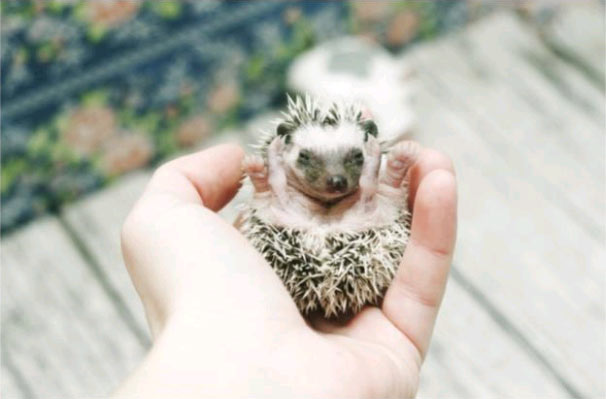The Easiest To Care For Exotic Pets
If you're in the market for an exotic pet, but don't want the hassle of changing a chimpanzee's diaper or are worrying about those with possible aggression problems, this is the list for you. Just like your common canine, depending upon their specific breed, some are more intelligent than others, require more grooming and exercise compared to their counterparts.
So, in this light, here are a number of exotic animals that are easy to care for, friendly and make great pets, along with tips on their habits and requirements:

The Hedgehog
Many pet lovers have seen a multitude of pictures and videos of these little spikeballs on social media sites like Facebook. Their cuteness factor alone makes them a popular choice, and although they're considered “exotic,” they're becoming more domesticated and are easily located for sale online. There are a few things to consider before adopting one of these little cuties:
- They're not necessarily considered social creatures, so it's recommended only one per household. But if you do want more than one, ensure they each have their own enclosure.
- “Hedgies” have a reputation for being temperamental, but they're easily tamed with enough handling and care.
- Their typical life-span averages 5-7 years.
- They have a simple diet that is mostly fruits, insects and high-grade, prepared food that is commonly found in many pet stores.
Hedgehogs also make great pets for children, since they are lovable and easy to care for, but kids should know they'll need to frequently clean up after them.
Rodents
Hedgehogs are not rodents, they're actually a subfamily known as Erinaceinae. These types of primarily caged animals have come a long way from the days of having a mouse or rat as a pet. Their care needs and cage requirements are somewhat similar to having a rodent, but consider some of these more exotic options:
- Chipmunks - While they may not be the best pet for handling unless they're properly trained, they're still more interesting than your typical hamster.
- Degus - Resembling an oversized gerbil, they're more closely related to chinchillas, which also make interesting pets.
- Flying Squirrels - Sugar gliders and flying squirrels seem to be all the rage these days since they do a lot more than simply run around in their cages.

Prairie Dogs
These members of the rodent family certainly deserve their own category since there's a lot more to them than meets the eye. They make very affectionate pets and can even be harness trained in some cases. They're very social creatures, so be prepared to spend a great deal of time with them and if you're in the market for one, they're typically only born in the spring.
Wilder Hybrid Cats - The Savannah and Bengal
These last few entries take the notion of having a traditional cat and dog to a whole new, exotic level. Savannah and Bengal felines look more like their wilder cousins, resembling a cheetah or leopard. These pricey pets are very active, curious and can be destructive if not trained properly. Due to their excitable personality and cost, most owners chose to get them accustomed to wearing a collar and harness train them in order to take them outdoors safely.
Non-Domestic Canines - aka Foxes
These furry little four-legged friends can be quite a handful, so make sure you know what you're getting yourself into before taking one of these on as a pet. Their behavior is said to be more “cat-like,” independent and aloof, although they can also be noisy and rambunctious.
Since they're natural predators, they'll need plenty of space and if caged, they should be let out often. Be sure to do your research and homework before getting a fox or any other type of exotic animal since there are so many different varieties that all come with varying personalities, temperaments and care needs.







